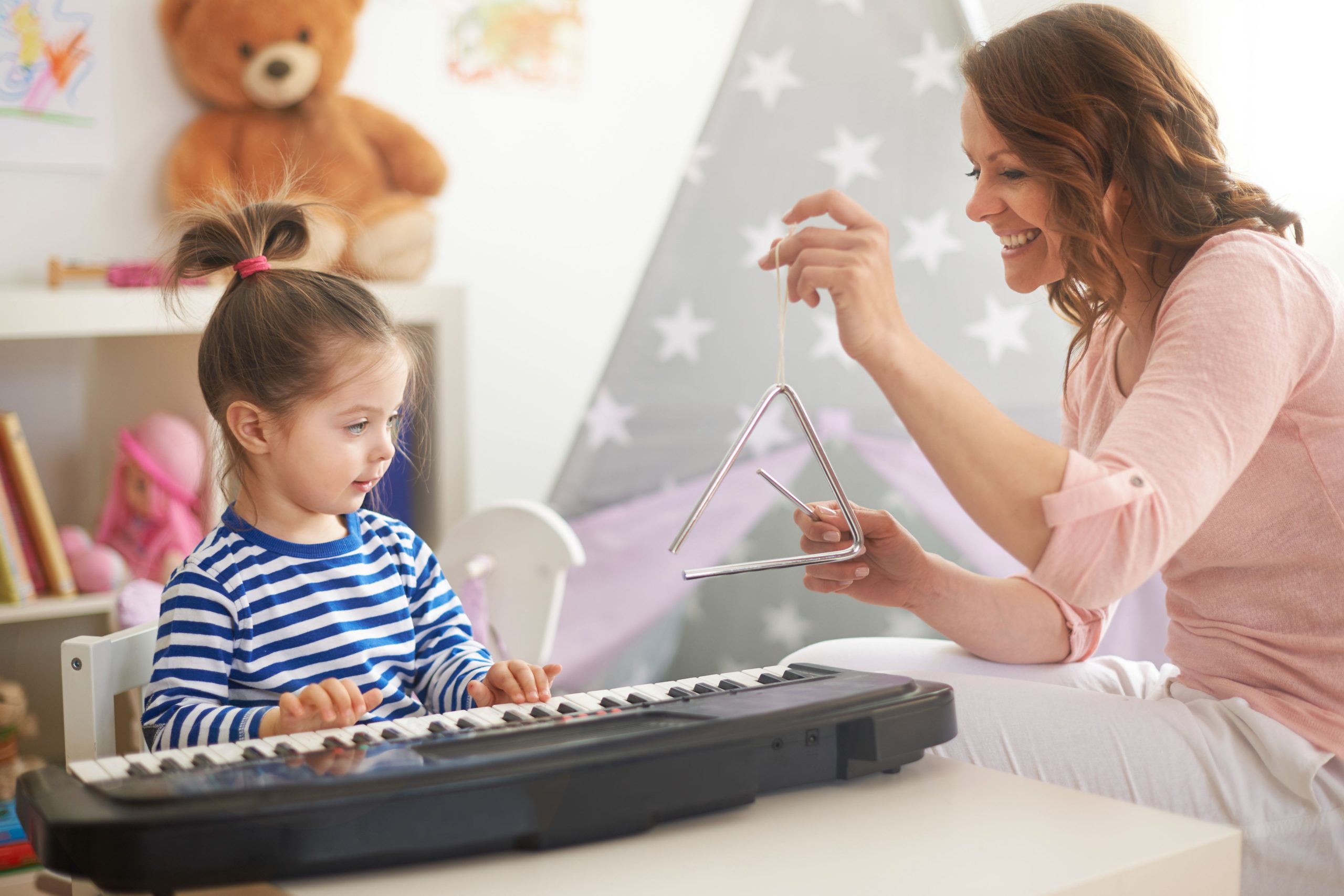
The Power of Music: How Listening to Songs Stimulates Preschoolers’ Imagination
Introduction
Music, with its profound influence on mood, emotions, and behavior, has been an integral part of human culture since ancient times. It serves as both entertainment and comfort for people of all ages, making it a significant aspect of life. However, its impact on young preschoolers stands out, particularly in stimulating their imagination, language, and cognitive skills.
The Benefits of Music for Preschoolers
Music Enhances Language Development
Moreover, music acts as an excellent tool for enhancing preschoolers’ language development. Notably, research indicates that preschoolers exposed to music develop a richer vocabulary and a deeper understanding of grammar, thereby improving their communication skills.
Music Improves Cognitive Skills
In addition to language, music significantly contributes to preschoolers’ cognitive development. When preschoolers engage with music, their brain processes various elements such as rhythm, melody, and lyrics simultaneously, leading to enhanced auditory processing and memory skills.
Music Boosts Emotional Development
Furthermore, music plays a crucial role in nurturing emotional development among preschoolers. It serves as a medium for identifying, expressing, and regulating emotions, fostering empathy, and building social relationships.
Music Encourages Physical Development
Additionally, music promotes physical development in preschoolers by encouraging movement and coordination. It prompts them to engage in activities that develop both gross and fine motor skills, enhancing their overall physical awareness.
Music Fosters Cultural Awareness
Lastly, music serves as an excellent tool for promoting cultural awareness and diversity among preschoolers. By exposing them to songs from different cultures and languages, it cultivates empathy, understanding, and a sense of belonging to a global community.
Tips for Incorporating Music into Preschoolers’ Daily Routine
- Create a playlist of age-appropriate songs
- Introduce nursery rhymes and lullabies
- Encourage playing musical instruments
- Promote dancing to music
- Consider enrolling in music classes
The Role of Parents and Caregivers in Promoting Music for Preschoolers
- Establish a musical environment
- Encourage active participation in musical activities
- Consider enrolling in music classes
- Lead by example by showcasing your love for music
- Support and nurture your preschooler’s musical interests
The Impact of Music on Language Development in Preschoolers
Beyond its creative influence, music significantly impacts language development in preschoolers. It aids in expanding vocabulary, improving phonemic awareness, enhancing sentence structure, refining pronunciation, and encouraging storytelling.
The Role of Music in Emotional Development in Preschoolers
Moreover, music plays a pivotal role in emotional development by assisting preschoolers in regulating emotions, fostering empathy, promoting positive self-esteem, nurturing social connections, and cultivating a sense of identity.
The Importance of Choosing Age-Appropriate Music for Preschoolers
When selecting music for preschoolers, it’s crucial to prioritize age-appropriate content. Focus on simplicity, slow tempo, age-relevant themes, positive messages, and a diverse musical repertoire to ensure an enriching experience.
How to Incorporate Music into Preschoolers’ Daily Routine
- Integrate songs into daily activities
- Facilitate music-play during leisure time
- Explore opportunities for music education
- Encourage hands-on experience with musical instruments
- Expose preschoolers to various music genres
Music and Social Development
Participating in musical activities fosters social development by promoting collaboration, teamwork, communication skills, and a sense of belonging among preschoolers.
Music and Cognitive Development
Furthermore, music contributes significantly to cognitive development by enhancing memory, attention, reasoning skills, language proficiency, problem-solving abilities, and abstract thinking.
Music and Emotional Development
Lastly, music plays a profound role in emotional development by facilitating emotional regulation, empathy, self-confidence, self-efficacy, and a positive sense of self-worth in preschoolers.


